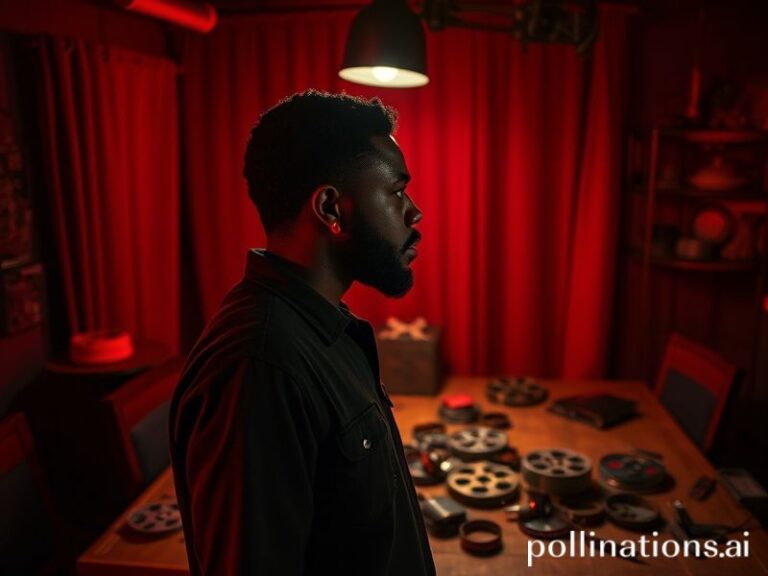World on a Shoestring Budget: How Brilyn Hollyhand, 17, Became the Globe’s Unpaid Policy Intern
The Curious Case of Brilyn Hollyhand: How a 17-Year-Old Alabama Kid Accidentally Became the World’s Most Reluctant Soft-Power Asset
By D. Locke, International Correspondent
PARIS—Somewhere between the seventh arrondissement and a nondescript brasserie where the espresso tastes like regret, I found myself staring at a phone screen displaying Brilyn Hollyhand’s Instagram grid. The kid—yes, kid, because at seventeen he still can’t legally buy a beer in Berlin or vote in Bogotá—has spent the last three years gliding through global corridors of power with the breezy confidence of someone who thinks “soft power” is a new TikTok filter.
In a saner world, Brilyn would be worrying about calculus finals. Instead, he’s fielding DMs from defense attachés in Jakarta, congratulatory voice notes from Lithuanian parliamentarians, and, rumor has it, a politely ghost-written thank-you card from a Gulf sovereign wealth fund. The reason? A newsletter he started at fourteen—yes, fourteen, an age when most of us were still mastering deodorant—called “The Truth Gazette.” Its circulation now rivals some midsize European dailies, and its readership spans finance ministers, think-tankers, and that one uncle in Mumbai who forwards every article with the caption, “Must read!”
The international press, ever hungry for a narrative that doesn’t involve artillery shell counts, has latched onto Brilyn as either the Gen-Z savior of democracy or a walking indictment of its collapse. In Davos this January, a Swiss policy wonk told me, straight-faced, that Brilyn’s interview with a certain former U.S. president was “a pivotal moment in transatlantic epistemic resilience.” I asked if she’d ever met an actual teenager. She blinked twice and reached for another mini-quiche.
But zoom out—way out—and Brilyn becomes less a person than a Rorschach test for our collective neuroses. In Seoul, his story is folded neatly into PowerPoint decks about “digital native influence” and its terrifying potential to swing elections 6,000 miles away. In Nairobi, university students dissect his monetization strategy in marketing seminars, half-admiring, half-horrified. Meanwhile, in Moscow, state TV uses him as proof that American democracy is literally being babysat. The irony, of course, is that Brilyn’s brand of earnest, typo-free civic engagement is precisely what every democracy claims to want—until a child starts doing it better.
Financially, the kid is a one-person emerging market. Advertisers from Lagos fintechs to Luxembourgish private banks pay premium CPMs to appear alongside his bullet-pointed explainers. One European diplomat confessed that his ministry’s comms budget now includes a line item labeled “Teen Outreach—Hollyhand Clause,” which sounds like either espionage or a very niche indie band. The money, friends in Montgomery whisper, is parked in a trust so conservatively managed it might actually outlast the dollar itself.
The darker joke is that Brilyn’s success is a coping mechanism for the adult world’s failure. While the U.N. Security Council perfects the art of the toothless resolution, a high-school junior is calmly fact-checking inflation data and scoring rebuttals from Nobel laureates. It’s as if we’ve collectively decided governance is now an unpaid internship, and only the interns are still naïve enough to show up on time.
So what does it mean that a teenager from Wetumpka, Alabama (population: one Waffle House per 1,200 souls) can command more international attention than most foreign ministries? In Brussels, it’s framed as a triumph of digital meritocracy. In Beijing, it’s cited in internal memos about “ideological infiltration vectors.” In Buenos Aires, they just shrug: at least someone still believes in footnotes.
As I drain the last of my espresso—now lukewarm, like global optimism—I realize Brilyn Hollyhand isn’t the story. The story is the rest of us, breathlessly retweeting a child who still has a curfew, praying his optimism is contagious and hoping, quietly, that we won’t have to explain to our own kids why the adults needed a minor to fix the world’s PowerPoint.
Conclusion: Somewhere tonight, Brilyn is probably proofreading a newsletter about debt ceilings before AP Chemistry. The planet, meanwhile, keeps spinning—slower, wobblier, but still—on the axis of teenage hustle and adult embarrassment. If that’s not a metaphor for the 21st century, I’ll eat my press badge. With a side of mini-quiche.







